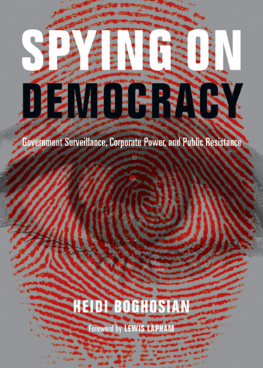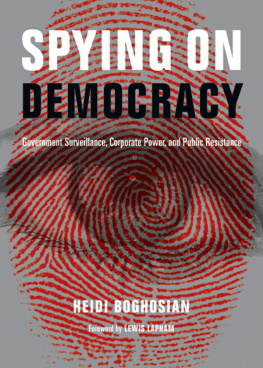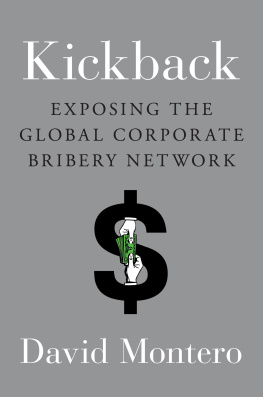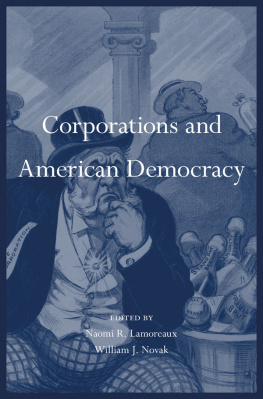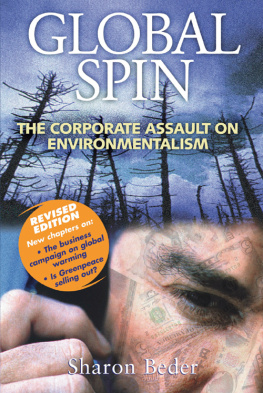PROLOGUE
A Personal Journey
I think there are good reasons for suggesting that the modern age has ended. Today, many things indicate that we are going through a transitional period, when it seems that something is on the way out, and something else is painfully being born. It is as if something were crumbling, decaying and exhausting itself, while something else, still indistinct, were arising from the rubble.
VCLAV HAVEL,
president of the Czech Republic
As a young man, I decided I would devote my life to ending world poverty. To that end I spent thirty years of my life as a development worker in Africa, Latin America, and Asia. I saw extraordinary changes in the worldespecially in Asia, where I lived from 1978 to 1992.
During my first visit to Asia as a student in 1961, I experienced many cities as dingy and remote. By the time I returned permanently to the United States in 1992 to share with fellow Americans the lessons of my experience, these same cities were sporting luxurious modern airports, superhighways crowded with late-model cars, five-star hotels, gated residential communities, and air-conditioned mega shopping malls stocked with state-of-the-art electronics and elegant designer clothing from all over the world.
Such signs of progress in what we once called underdeveloped countries are now even more pervasive. To those who look no further, development seems to have been a stunning success. Yet look a little deeper, and it is like an elaborate movie set, carefully constructed in the midst of dystopian devastation.
Yes, hundreds of thousands of people are living extremely well, and millions are enjoying far higher levels of consumption than ever before. But billions have been displaced from the lands on which they once made a modest living to make way for mining operations, oil extraction, dams, agricultural estates, forestry plantations, resorts, golf courses, and myriad other development projects catering to the needs and wants of the few. The many live in squalid slums and struggle to survive as sweatshop workers, migrant agricultural laborers, street vendors, drug dealers, and sex workers.
The trees are gone from once-lush hillsides. Coral reefs once vibrant with life are underwater wastelands. The air is thick with pollutants. Cultures grounded in strong spiritual, family, and community values have given way to materialism and violence.
Politicians and the press display little awareness of life beyond the faade and even less understanding of the root causes of poverty and unemployment, inequality, violent crime, family and community breakdowns, and environmental collapse. Our leaders seem unable to move beyond blaming their political opponents and promoting the same old ineffectual solutionsaccelerating economic growth through deregulation, cutting taxes, removing trade barriers, giving industry more incentives and subsidies, forcing welfare recipients to work, hiring more police, and building more jails.
I find it is often the people who live ordinary lives far removed from the corridors of power who have the clearest perception of what is really happening. Yet they are often reluctant to speak openly what they believe in their hearts to be true, because it is too frightening and differs too dramatically from what those with more impressive credentials and access to the media are saying. They feel isolated and helpless.
The questions nag: Are things really as bad as they seem to me? Why dont others see it? Am I stupid? Am I being intentionally misinformed? What can I do? What can anyone do?
I struggled for years with the same questions, at first with a similar sense of isolation, now with awareness that many millions of others are asking the same questions. I wrote When Corporations Rule the World as part of my own search for answers. A great many readers have told me that reading it opened their eyes and changed their lives. In most instances it helped them see with clarity and confidence what they suspected might be true and gave them the language to discuss it.
Getting the difficult and unpleasant truth on the table for discussion is a necessary first step toward action. Fear of the unknown can immobilize us, especially if we believe we are alone. Knowing we are not alone can help us face an increasingly terrifying reality with courage and empower us to act.
Let me begin by sharing a bit of the journey that led to my writing When Corporations Rule the World and the decision to present this 20th anniversary edition with this updated prologue, along with an all-new introduction, an all-new conclusion, and an updated epilogue. I hope that this may help you approach this book as you would a conversation with a valued friend.
Roots of the Inquiry
I was born in 1937 into a conservative white upper-middle-class family in Longview, Washington, a small timber-industry town of some 25,000 people. Assuming that one day I would manage the familys retail music and appliance business, I had no particular interest in venturing beyond the borders of the United States. As a psychology major at Stanford University, I focused on musical aptitude testing and the uses of psychology to influence buying behavior. Then in 1959, during my senior year, a curious thing happened.
At that time a very conservative Young Republican, I was deeply fearful of the spread of communism and the threat it posed to the American way of life I held so dear. This fear drew me to take a course on modern revolutions taught by Robert North, a professor of political science. There I learned that poverty was fueling the communist revolutions I so feared.
In one of those rare, deeply life-changing moments, I made a decision. I would devote my life to countering this threat by bringing the knowledge of modern business management and entrepreneurship to those who had not yet benefited from it.
I prepared myself with an MBA in international business and a PhD in organizational theory from the Stanford Business School. Three years in Ethiopia setting up a business school with the help of my newlywed life partner, Frances Korten, provided my apprenticeship. I did my obligatory military service during the Vietnam War as a captain in the US Air Force, fulfilling staff assignments at the Special Air Warfare School, the Office of the Secretary of the Air Force, and the Office of the Secretary of Defense. I then signed up for what turned out to be a five-and-a-half-year tour on the faculty of the Harvard University Graduate School of Business.
For three of my Harvard Business School years I served as the Harvard adviser to the Nicaragua-based Central American Management Institute (INCAE), a graduate business school catering to the elite business families of Central American and Andean countries. After returning to Boston, I taught for two more years at the business school and then moved to the Harvard Institute for International Development and the Harvard School of Public Health.
At the beginning of 1978, Fran and I joined the Ford Foundation staff in the Philippines and remained in Southeast Asia for the next fourteen years. While Fran stayed with Ford, I moved on to spend eight years as a senior adviser with the US Agency for International Development (USAID), the official US foreign aid program.
I share this detail to establish the depth of my conservative establishment roots. The more interesting part of my story, however, has to do with my gradual awakening to a troubling truth: that conventional economic theory and practice is a leading cause ofnot the solution topoverty, exclusion, and environmental system collapse.
Personal Awakening
The Stanford course on modern revolutions awakened me to the reality of global poverty. In 1961, a summer in Indonesia immersed me in the heroic struggles, spiritual grounding, and generosity of people who live in desperate poverty. It was an aspect of the human experience I had not previously encountered.



